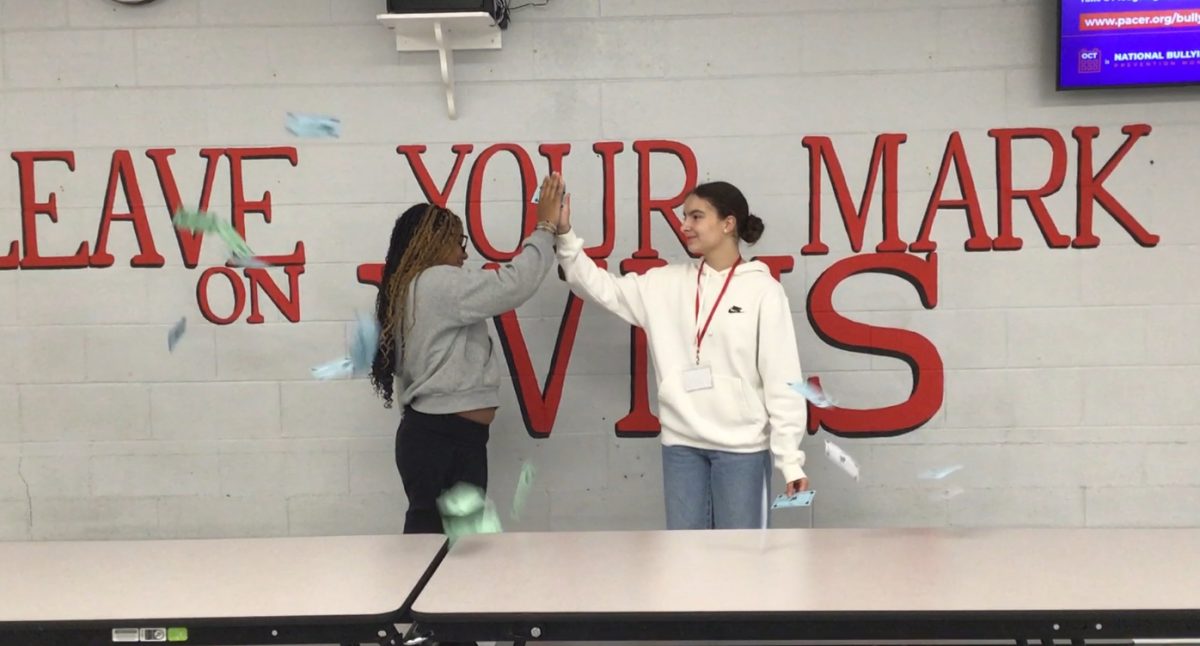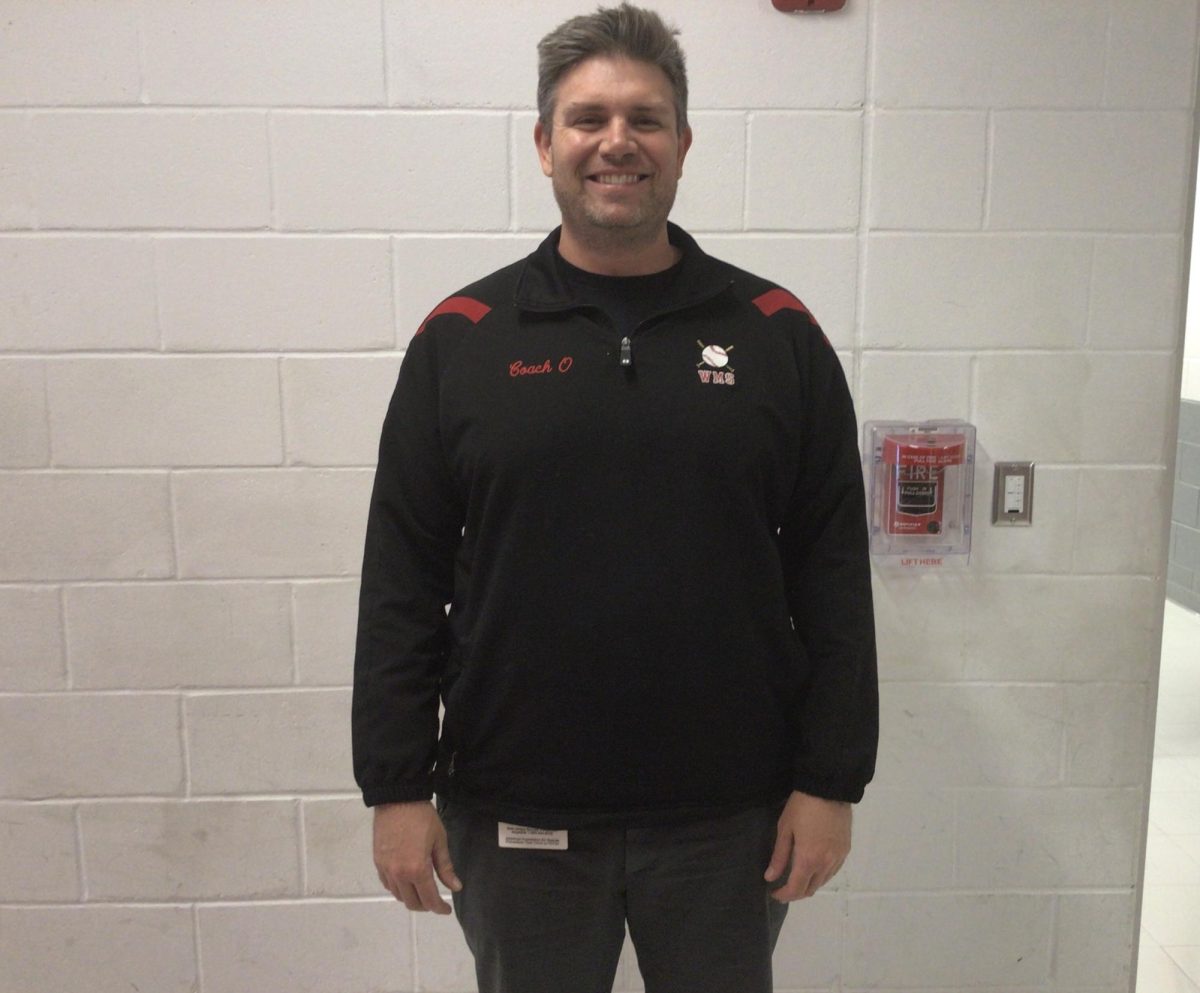Transitioning into high school can bring a lot of extra fear and excitement for athletes. Some may be worried about how they perform in high school, and the little time they have to prove themselves. It’s a crucial moment for student-athletes to develop and showcase their skills on the field or court. Going into high school, athletes face new and better competition. High school is where you learn that there are levels to athletics, and realizing you’re not as good as you thought can either make or break you. However, it’s always important to keep going, because it’s not about where you start, but about where you finish.
A growth mindset becomes crucial. Embracing challenges, persisting through setbacks, and viewing failures as opportunities for growth are key to not only improving athletic performance but also adopting resilience and character.?>
Transitioning into high school can be a challenging experience for many students. Here are some common problems they might face: Academic Pressure, Social Adjustment, Time Management, Increased Competition, Identity and Self-Discovery, Pressure from Parents and Coaches, Navigating Relationships, Mental Health Issues, Changing Environment, and Extracurricular Commitments
Understanding these challenges can help students prepare for the transition and seek support when needed. By acknowledging these challenges and implementing effective goal-setting strategies, students can navigate their high school experience more successfully and cultivate resilience along the way.
Embracing a Growth Mindset:
Talking about how important it is to develop a growth mindset for high school, high school is your arena, and your time to flourish.
In high school, there are levels to this sport stuff, and there’s someone out there constantly outworking you, and you have to have that mindset to be the best you can. You have to stay consistent and disciplined with your craft. Your mindset should be to outwork everyone. Surround yourself with individuals who push you to be better and offer support when the going gets tough. Set specific goals for yourself and break them down into manageable steps.
Celebrate small wins along the way, as they’ll help you stay motivated on your journey. Also, remember that growth is a continuous process. There will always be room for improvement, and being open to learning new techniques or strategies will set you apart. Listening to feedback, accepting constructive criticism, and seeking advice from coaches can provide valuable insights that elevate your game.
Setting Realistic Goals:
Athletes around the world all have different goals when it comes to playing their favorite sport. Some goals can be short-term, such as playing their sport just for fun, winning games, or simply getting extra exercise. Some other athletes also have long-term goals, such as playing Division 1 in college or possibly playing professionally. To achieve a long-term goal, it is essential to have a short-term goal. For example, a football player who wants to play college football must ensure he is in the weight room, eating nutritious food, and working on his craft while no one is watching. Set little goals, such as drinking a gallon of water every day, trying to limit fast food, and getting 30 minutes of weightlifting at the gym every day. All of these little goals can turn you into a great athlete.
Building Confidence Through Preparation:
Confidence comes from consistent physical and mental preparation. When athletes train hard, stick to routines, and stay focused even during tough times, it builds real self-belief. Coaches like Mr. Thompson and Mr. Cianfano stress that confidence isn’t just natural; it’s earned through effort, mindset, and pushing through challenges. Visualization, sticking to goals, and trusting yourself are key to gaining a competitive edge
Mr. Cianfano shared, “Even if you had struggles early on, you’re going [need] to be like, ‘alright, I’m going to figure out a way to get this done.”
Mr. Thompson shared how life experiences shaped his confidence, “Life throws curveballs at you, so you have to overcome challenges; it’s part of life.”
Both coaches agree that real confidence comes from discipline, mental toughness, and the belief that preparation leads to performance. Whether it’s lifting, studying film, or visualizing success, the work you do now gives you the edge later.
Handling Pressure and Expectations:
In high school sports, pressure is part of the game. Whether it’s from coaches, teammates, parents, or yourself, it can feel like the weight of the world. But learning how to manage that pressure is what separates the good from the great.
Mr. Thompson put it clearly:
“You have to go to high school and understand that you’re now a small fish in a big pond.” That shift can shake your confidence. But instead of folding, use it to fuel your growth. Here’s how:
- Mindfulness: Deep breathing and quiet focus help calm nerves.
- Positive Self-Talk: Say things like “I’ve prepared for this” to stay confident.
- Pre-Game Routine: Build a consistent warm-up that gets your mind and body ready.
- Keep Perspective: One moment doesn’t define your whole journey.
Coach Cianfano explained:
“If you have this belief that ‘I can do this no matter how hard it’s gonna be,’ you’re going to succeed.”
Pressure never fully disappears, but if you prepare and stay mentally strong, you can turn it into your advantage.
Experiencing new changes going forward into high school:
High school is a whole new world, with new teachers, harder classes, and tougher competition. For student-athletes, it’s not just about adjusting to schoolwork; it’s about mentally adapting to a faster, more demanding athletic environment. That change forces growth.
At first, it might feel uncomfortable. You might not be the best player anymore. You’ll hear more criticism, face more pressure, and get less praise. But over time, many athletes learn something important: criticism isn’t hate, it’s an opportunity.
When you realize that feedback is meant to help you, not hurt you, everything changes. You start listening, learning, and transforming. You stop taking things personally and start using them as fuel.
This mindset shift from defensive to growth-minded is one of the biggest changes athletes go through in high school. And it doesn’t just make you a better player, it makes you stronger mentally, more coachable, and more prepared for life beyond the field.
To Wrap
Mr. Cianfano is an exceptional teacher and used to be a coach for high school football. A question we asked him was why it is important to have a growth mindset.
“Anything you do in life starts with a good mindset. If you have this belief that ‘I can do this no matter how hard it’s going to be’, you’re going to succeed even if you had struggles early on, you’re going to be like, ‘Alright I’m going to figure out a way to get this done’ so it’s always important to have that mindset in anything.” – Mr Cianfano
Mr. Thompson is a successful high school bowling coach, and he helped answer the question of what some of the challenges student-athletes face going into high school are and how they affect them.
“You have to go to high school and understand that you’re now a small fish in a big pond, you’re gonna have to earn your way up the ranks, you’re gonna have to be respectful and nice to everybody, and then earn your way up the ladder.” – Mr Thompson
A growth mindset is important for a successful athletic career when moving into high school as a freshman. Mr Thompson a college and high school coach says, “You have to go to high school and understand that you’re now a small fish in a big pond, you’re going to have to earn your way up the ranks, you’re going to have to be respectful and nice to everybody, and then earn your way up the ladder.”
This means you have to be aware of your surroundings and set goals because, without the right mindset, you can easily crumble in the large aquarium of life.












